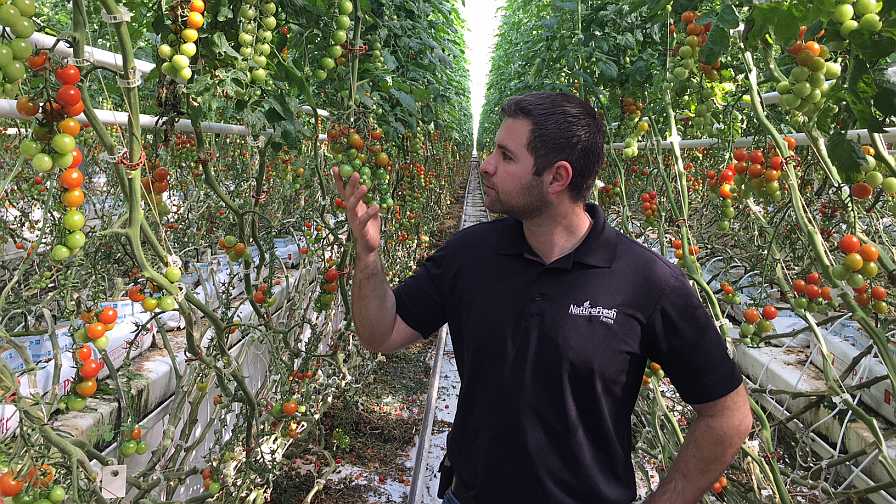Advice to Attract More Young Growers to the Farm

Renato Zardo is a GenNext Grower with a unique on-the-ground perspective on the state of young farmers in the industry.
Photo courtesy of NatureFresh Farms
Renato Zardo has a fresh perspective on the growing industry. There are several reasons for that. He started his career and education in Brazil before moving to the U.S., where he earned a master’s degree in science from The Ohio State University. He’s also worked in both the ornamental and greenhouse vegetable industries. He’s currently working for Delta, OH-based NatureFresh Farms.
Zardo is an ambitious grower and has worked hard to achieve his success. So, we definitely wanted to hear his viewpoints on being a GenNext grower and what he thinks it will take to have more young growers in the industry.
Q: The industry is having trouble attracting younger growers. What will it take to make growing more attractive to those deciding what their careers will be?
Zardo: Just look around us. When you search for “most promising careers,” “best companies to work for,” or “highest paying jobs,” you won’t see agriculture listed. The corporations that are changing the world are all related to technology. So those types of careers grab the attention of new generations of professionals.
And let’s face it, growing is a hard-working job. You need to get your hands dirty. Plants don’t take vacations or holidays, so you need to be there when they need you.
To compete, our industry has to become more attractive by incorporating the practices used by those successful corporations. To my knowledge, we had the first company offering ESOP (employee stock ownership program) in the horticulture area in 2017 (Tanimura & Antle, featured in the February 2018 issue of American Vegetable Grower magazine). This has been done successfully in other industries for years. Why isn’t it a common practice for us yet?
Or we can offer more simple things, like career planning. We can invite younger growers to sit down with their CEOs, operation owners, or managers and develop a plan for their careers. We should let them know what they need to do and what they need to achieve in order to get there. So they then have a goal — a vision of the big picture to drive them to be the best versions of themselves.
As Richard Branson says, “no man is an island.” The new generation wants to feel they belong to a team, a winning team, and not just put in a place and told to get the job done.
Another suggestion is to invest in leaders that will attract and inspire this new generation. New growers, fresh out of college, will be observing everything around them. They will look to their managers or head growers and think, “Do I want to be like him in my career?” or “Is this the kind of person that I’ll become if I stay here for 15 or 20 years?” If new growers don’t like what they see, they won’t be there long.
There is no secret to attracting young growers. It’s mostly copying what successful companies in other industries are doing. At the end of the day, the most important asset for any company in any industry is the workers.
Q: What advice would you give on how to develop a career as a grower?
Zardo: Be patient. I’m writing that while laughing inside, because I’m not a patient person when it comes to my career. I want to see my career developing in a never-ending ascending and linear graph. And I have seen this happening with young growers that we hire. They want to move up and fast. We all need to learn that you earn advancement by showing consistent and great results.
Greenhouses are a very dynamic place. You can have hundreds of crops or processes happening all at the same time. So, another piece of advice is not to look for reasons to justify why a project or task can’t be done. Look for ways to show how it can be done under the circumstances that you have.
No matter which segment you are in, every company is made of people, plants, and processes. You need to know the plant physiology, understand the process, and connect with the people.









